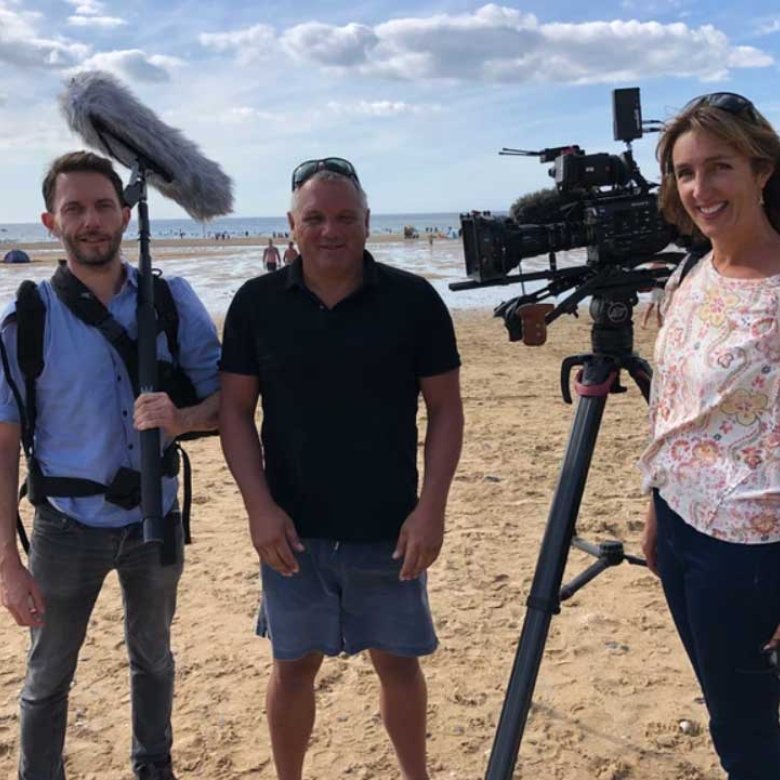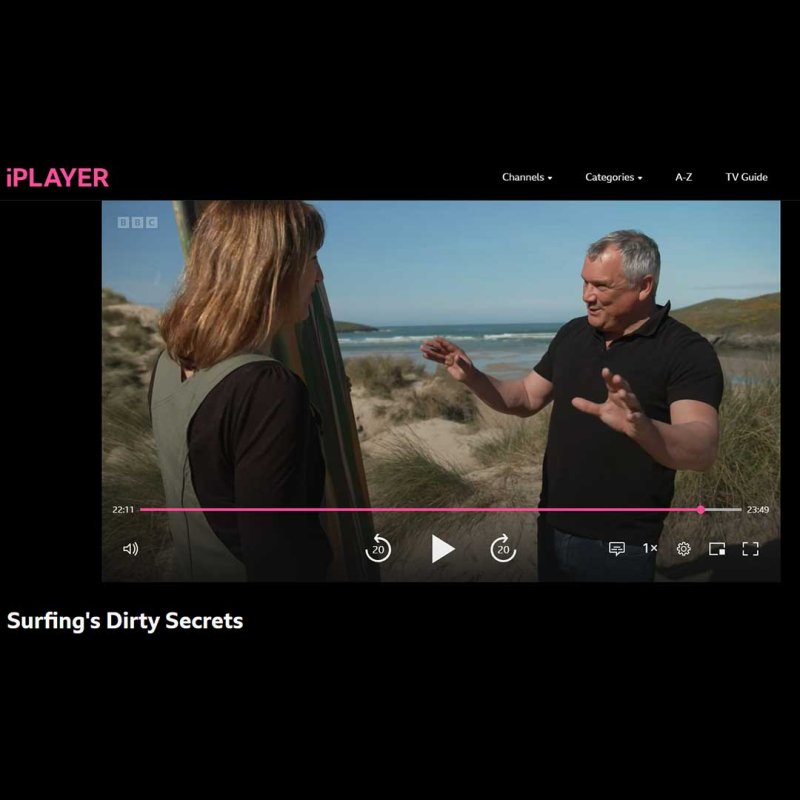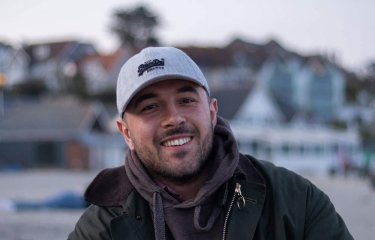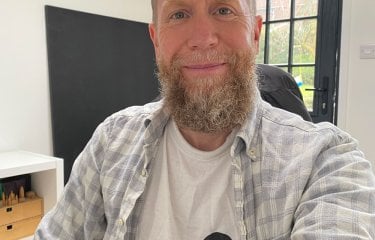Sustainability and surfing: In conversation with Dr Greg Borne
15 July 2024

Dr Greg Borne, course leader for Falmouth’s new MSc in International Business Management, is a sustainable development expert with over 20 years of experience in researching and teaching. He has worked with both international and local organisations, as well as authoring numerous journal articles and four books, three of which explore the relationship between sustainability and surfing. We chatted to him about his commitment to sustainable development and how he became the first author to bring together the world's foremost thinkers on sustainability and surfing.
What first got you interested in sustainable development?
I was fortunate enough to grow up in an Area of Outstanding Natural Beauty on the south coast of Devon, and members of my broader family are from the Mousehole, Helford and Falmouth areas of Cornwall – it is such an awe-inspiring part of the world. So, I have always had a love of the natural world and an interest the issues that sustainable development represents.
But the southwest peninsula of the UK – as with many areas of the world – has its social and economic challenges, and I’m interested in how humanity impacts the natural environment, but also the relationship between society, environment and economy.
I started contacting organisations with connections to both surfing and sustainability and while many exist today, I found that back then there were very few.
That interest has stayed with me both professionally and personally, and so when I first came across the term ‘sustainable development’ during my undergraduate studies over 25 years ago, it resonated strongly with me. I have since spent my career researching its different aspects, from examining the relationship between economy, society and the environment on both global and local scales, to the responsibility facing current and future generations.
You have worked for many organisations within sustainable development, including the UN. What is the most valuable thing you have learned on your career path so far?
The importance of listening to other people’s perspectives. Sustainable development is a diverse and often contested concept, and different people and groups will have their own priorities. We therefore need to understand what these are and where there is common ground. We see these different priorities play out every day: in the media, in policy, in legislation and in broader public opinion. Achieving sustainable development means that compromises must be made, and listening to what is being said and being prepared to challenge people's views – and also your own – is such an important part of that process.

You have published several books on sustainability and surfing. How did you come to be an expert in this area, and what makes you passionate about it?
I’ve been surfing on and off for most of my life, and without sounding too cliched, being immersed in the ocean is my passion. But it wasn’t until 2011 that I got the opportunity to combine my academic work on sustainable development with surfing. I started contacting organisations with connections to both surfing and sustainability and while many exist today, I found that back then there were very few. So, I started talking to people around the world to try and understand what sustainability meant within and beyond the surfing industry.
I made a lot of friends along the way and worked with some really passionate people, both internationally and locally. The result of that stage of the work was the book Sustainable Stoke: Transitions to Sustainability in the Surfing World. After this I took a deeper dive (no pun intended!) from a research point of view which ultimately resulted in two further books: Sustainable Surfing and Surfing and Sustainability.
I’m still at it, too. This year I consulted on and featured in a BBC documentary called Surfing’s Dirty Secrets which explored some key sustainability issues. I’m also working with the newly inaugurated North Devon World Surfing Reserves on a ‘surfonomics’ study, and have recently published a surfing article in the journal 'Business Strategy and Development'.
Having had a non-linear journey through academia yourself, why do you think it’s important that people study business to master’s level?
Before becoming an academic I worked for many different organisations, and I travelled the world to explore as many cultures as possible. What is clear is that business has a significant role to play in achieving sustainable development. With the establishment of the United Nations Sustainable Development Goals in 2015, the idea moved from a fringe concept to the forefront of everyone’s agenda, whether they like it or not. Studying business at master's level allows students to really explore and analyse the complexities and uncertainties that we now face in the world and discover ways to make a positive impact.
Meeting new students and facilitating debates and conversations is something I’m really looking forward to.
What aspect of leading Falmouth’s International Business Management MSc are you most looking forward to?
The relationship between art and science adds a very special and essential dimension to Falmouth’s degree programmes. Today's world issues are complex and interrelated, and solutions require imagination and creativity, combined with a sound understanding of key business principles as well as an awareness of emerging tools and technologies. So, meeting new students and facilitating debates and conversations is something I’m really looking forward to.
I also love the idea of being able connect the international dimension to Cornwall’s local businesses and organisations; there is so much talent in the area and a lot of opportunities. And of course, being part of the Cornwall Business School team that are really pushing the boundaries of business and creativity.
You are set to publish a new book next year about engaging local communities in sustainable development. What does this look like within Cornwall now?
That’s an interesting question and there are many possible answers. Drawing on extensive research I conducted with town and parish councils in Devon and Cornwall, the book explores perceptions of sustainable development and climate change, as well as the policy context and practical challenges of embedding sustainability within communities. The book then relates this empirical work to broader global trends and explores the way that the United Nations Sustainable Development Goals are – or are not – resonating with local populations. Watch this space!




